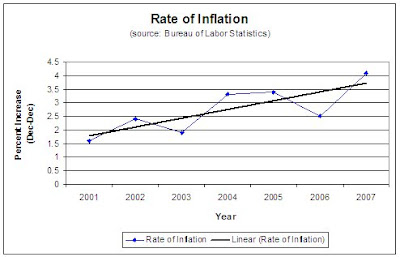To Boycott or Not to Boycott, that Is the Question
It has long been established that China is notorious for their human rights abuses. For years the United States relationship with China had been cold, and all the time the government argued that it was about human rights violations, the treatment of their people. But that chilly attitude changed once China began to open its doors to aspects of free trade. The United States saw an opportunity and seized it! The most populous nation in the world without protections for workers is a perfect place to do business. Think of all the costs that can be cut and all the profits that can be made! Very exciting for those with interests in the business world. But if you have an interest in people, then look away because things here are not so pretty.
When I think of China and human rights two things come to mind: 1) Tiananmen Square Massacre in 1989 and 2) China's invasion and occupation of Tibet in 1950.
On June 8, 1989, I was on my way to pick up my tuxedo for my prom the next day. It was an event I had looked forward to for four years. The limousines were rented, the plans for after the prom were to go to either Emerald City (a dance club in NYC) or a comedy club, also in NYC. And afterwards, crash at a friends house to kick off a nice relaxing weekend. The day after the prom, my girlfriend and I went out on her boat along with another couple from the prom. It was a great day. But at the same time, on the opposite side of the world, students my age were not having such a nice weekend. They were peacefully protesting to have a few freedoms. They wanted their government to loosen up the tight control on speech. They wanted some right to religion. And yet, I, a naive teenager, aged 18, was taking for granted the freedoms that these Chinese students were asking for. But this protest was "getting out of hand." There were too many people protesting peacefully. The idea might spread, and that just could not happen.
On April 15, 1989, Hu Yaobang died. A Communist Party elite who oversaw the drastic makeover of the Party during the years 1982-1986, was viewed by the many in China as the major figure for reform. Upon his death, the many students gathered in Tiananmen Square to gain audience at the Great Hall of the People in order to request social and political changes. Their attempt to be heard was never granted and viewed by the students as a snub. As a result, overnight, many independent student organizations formed in cities throughout the countries, and some even clashed with police. But despite what appeared to be the beginning of a movement, Party leadership believed that it would all blow over the memorial service for Hu Yaobang on April 22. This estimate was incorrect and the movement would be discussed among the Party leaders as "turmoil" with the same negative connotation as the "turmoil" of the upheavals during the Cultural Revolutions of 1966-1969. At this point, the Party could not turn back from its course. It had denied audience to the students and now that the movement had grown, giving in to the protesters would be a sign of weakness in the Party, and would therefore send the message to other groups that protesting would help to get your way. Not a message the Party would advocate.
As the protests continued into and throughout May, the patience of the Chinese government grew shorter as they became anxious to end this before the arrival of Soviet leader Mikhail Gorbachev. The students saw Gorbachev as a symbol for reform and by the beginning of June, the government had run out of options. They brought in the troops who would later be ordered to end the protests by force.



This is a single example of the Chinese treatment of their people. One that hits home to me once I put it into perspective, that I was attending my prom while they were facing off with tanks. Today we are seeing another such protest and reaction from the same Chinese government. Sure the names of the leaders re different, but the Party is the same. In 1950 China invaded and occupied the independent nation of Tibet. By 1959, Tibet would lose it's "autonomous" status and clearly unwillingly be a part of China with the exile of the Dalai Lama to India (for an amazing movie about these events, watch the Martin Scorsese film, Kundun). Since that day, the political and spiritual leader of Tibet, the Dalai Lama, has been unable to return for fear of his life. He has been helping to guide his people from India.
On a personal note, I have read some of the writing of the Dalai Lama and read about his history. I am infinitely impressed by his steadfastness and devotion to peace. I can not a imagine a single person that would blame or fault him if he decided to show anger or advocate violence against China considering what the people of Tibet have been subject to. But instead, his perseverance, courage, and calm have been an inspiration. From reading interviews and teachings, I have become a new person, he has totally helped me improve the person I once was to who I am today (I am not saying that I couldn't stand to improve some more, but I believe that I am a better person now than I was 8-10 years ago).
Today, the people of Tibet are once again struggling against the Chinese regime - demonstrating for independence. But the Chinese government continues its crackdown on the protesters who are not limited to Tibet, but to other neighboring provinces as well. And as this protest spreads, Beijing may be faced with some serious problems in the run up to this year's Olympic Games in Beijing. Many world leaders are already planning to boycott the Games, while many others have yet to decide. "President" Bush insists that he will honor his commitment to the invitation to attend the Olympic Games claiming that there would be more to gain be keeping the dialog open between the two leaders (Bush and Hu Jintao). His view is that a boycott would make the Chinese leader more reluctant to listen to the President and any discussion about human rights. So the question remains, would there be mo to gain from boycotting or attending the Olympics?
Economically, the United States has much to gain by keeping in the good graces of China - potentially the largest market in the world. In addition to being a source of cheap labor and cheap goods, China also holds an abundance of US currency. This could be very bad for the US dollar. Remember, since the $US is backed by faith in its value, all China need do is demand yuan (the Chinese currency) for $US. This would result in a devaluation of the dollar and an increase the rate of inflation experienced by Americans.
Last week, as the Olympic torch made its appearance in San Francisco during its brief visit to the US, it was to be met by many protesters. But the heavily guarded torch procession took an alternate route in order to avoid the concentration of demonstrator for fear that it would encounter the same resistance as it did in London and Paris. But when I saw pictures of the armed escort the torch received I was hard pressed to tell the difference between the United States and a police state. What have we been reduced to as a nation? Do we live in such fear that we must have such a presence for a procession to honor the Olympic torch? Or, has our xenophobia taken us so far that we should now even fear those sworn to protect us?
 Police Escort in San Francisco
Police Escort in San Francisco
With regard to the history of the Olympics. Every four years in ancient Greece, the finest athletes from all of the city-states would get together in the spirit of competition in the city of Argos. These athletic events were to honor the king of the gods, Zeus. The pan-Hellenic games were the ultimate sign of goodwill between the competing cities as every city-state pledged a ceasefire of any hostilities for at least the duration of the games. Today, the ideal of worldwide good will continues to exist as the athletes compete together and recognize their similarities as athletes and put aside their differences as, perhaps, political enemies. Yet we rarely live up to that ideal. And it is made even more difficult to hold this ideal high when the very host country continues to hold an entire nation prisoner, as it does to Tibet. When this happens the spirit of the games is lost and it becomes nothing more than spectacle. A game without meaning.
"I decided it is better to scream. This pitiful sound, which sometimes, goodness knows how, reaches into the remotest prison cell, is a concentrated expression of the last vestige of human dignity. It is a man's way of leaving a trace, of telling people how he lived and died. By his screams he asserts his right to live, sends a message to the outside world demanding help and calling for resistance. If nothing else is left, one must scream. Silence is the real crime against humanity."
- Nadezhda Mandelstam
Labels: boycott, Bush, caggia, china, Kundun, olympics, pictures, police, protest, tibet, torch








